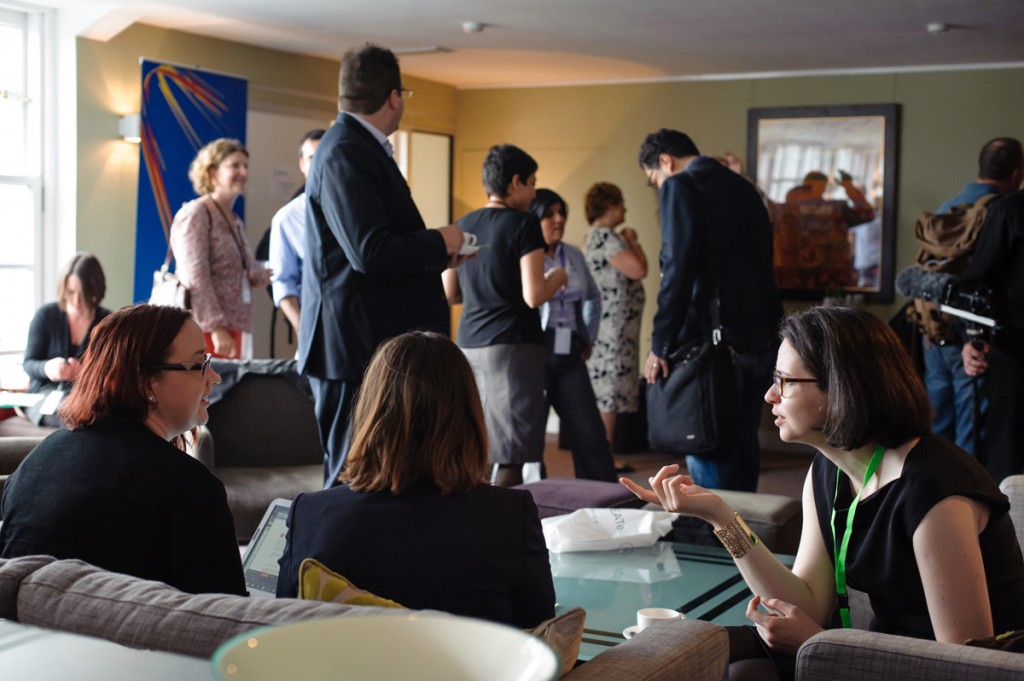The PhD Archive includes details of CREATe’s alumni and previous PhD activities and training.
Former PhD Students
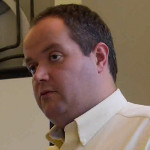 |
Mr Kenny Barr (PhD) Now Research Associate in School of Culture and Creative Arts, University of Glasgow |
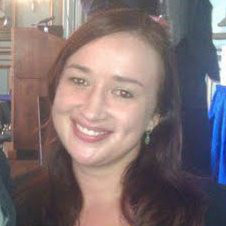 |
Ms Megan Rae Blakely (PhD) Now Lecturer in Law at Lancaster University |
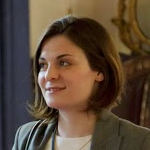 |
Ms Sheona Burrow (PhD) Now Research Fellow (pt) at CREATe |
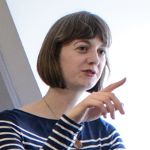 |
Ms Kerry Patterson (RA) Now CREATe Community Manager |
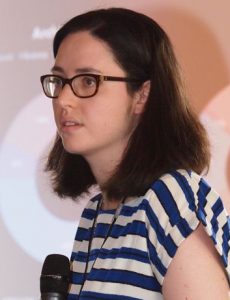 |
Ms Victoria Stobo (PhD) Now EnDOW Researcher and Lecturer at Liverpool University |
 |
Ms Andrea Wallace (PhD) Now Lecturer in Law at the University of Exeter |
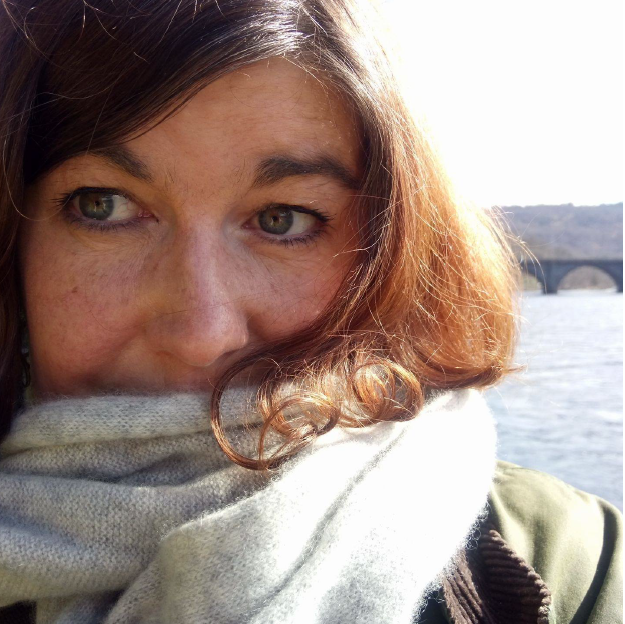 |
Ally Farnhill (PhD) |
 |
Jaakko Miettinen (PhD) |
 |
Daniel Astone (PhD) Now PhD candidate at Stockholm University |
CREATe Studio
The CREATe Studio was a programme of capacity-building activities for PhD students and early career researchers across the disciplines of law, economics, social science, technology and humanities. This included public lectures and events such as the Early Career Research Camp in May 2017, the Open Innovation Design Jam in 2016 and the Copyright Hackathon in 2016. Details of the monthly interdisciplinary reading group, where researchers explored newly published ideas, received feedback on working papers and met new colleagues, are the links below.
[expand title=”I. Click to Display Previous Studio Activity 2017” swaptitle=”I. Click to Display CREATe Studio Activity“]
CREATe Studio Activity: Spring 2017
CREATe Studio welcomes new researchers to come along to the following upcoming meetings:
Monday, 27 March 2017 4:00pm – 5:30 pm, CREATe Hub, room 404, 10 The Square
‘Academic Research as a Commons and Universities as Common Pool Resources’
Presentation by Dr. Elisa Cortu, University of Venice
As knowledge and scientific research become increasingly valuable, intellectual property has spread as a hegemonic model of private management of intangible resources and universities have been developing their own business models. Within the legal discourse, these trends find a further explanation in the way some rhetorical arguments have developed: the strong protection of exclusive rights becomes the mandatory instrument to promote research, while the formal procedures of evaluation, often based on mere quantitative methods, appear the necessary premise to ensure the highest quality of research. This often causes the concentration of power in the hands of few people, resulting in a rigidly compliant research environment and a limited access to knowledge. A solution to this problem may be found in the theory of the commons, which implies a shift from efficiency to cooperation, from exclusion to sharing, from individualism to solidarity. The idea of universities as common pool resources and research output as commons could be the way to challenge hierarchy and promote a process of democratic participation across the academic system.
Wednesday 8 March, 2017, 3:30 – 5:30pm (CREATe Hub, room 404, 10 The Square, University of Glasgow),
‘Writing and publishing interdisciplinary research’
Academic publishing is undergoing profound transformations and faces challenges from digitalization, the embrace of open access, and data-driven forms of investigation and inquiry. In the context of these changes, publications remain the currency of academic career progression. How can early career researchers navigate the requirements of academic publication, with the additional challenge of interdisciplinary? We will discuss examples of effective strategies from law, economics and social science, with senior researchers on hand to provide advice about the publication process.
Resources for discussion:
R. Towse (2015). ‘Literature reviews as a means of communicating progress in research.’ CREATe Working Paper 14/7
Nolin, J. M. (2011). ‘Boundaries of research disciplines are paper constructs: Digital Web-based information as a challenge to disciplinary research.’ First Monday, 16(11).
Tuesday 14th February 2017 3:30pm – 5:30 pm, CREATe Hub, room 404, 10 The Square
‘Methods for investigating digital platforms: algorithms and affordances’
The purpose of this meeting is to share and discuss techniques and methodological challenges related to investigating culture industries in online settings. CREATe researchers will share recent research design processes for investigating behavior on YouTube, Amazon and Kickstarter. Attendees are encouraged to bring specific questions related to their own online research challenges for group discussion. The readings below provide context and theoretical underpinning for understanding the ‘method as the message’ in online research.
Resources for discussion:
T. Bucher and A. Helmond (forthcoming). ‘The Affordances of Social Media Platforms.’ The SAGE Handbook of Social Media. Ed. Jean Burgess, Thomas Poell, and Alice Marwick. London and New York: SAGE Publications Ltd.
B. Rieder (2016). ‘Scrutinizing an Algorithmic Technique: The Bayes Classifier as Interested Reading of Reality.’ Information, Communication & Society 0.0: 1–18.
E. Weltevrede and E. Borra (2016). ‘Platform affordances and data practices: The value of dispute on Wikipedia.’ Big Data & Society 3(1).
[/expand]
[expand title=”I. Click to Display Previous Studio Activity 2016” swaptitle=”I. Click to Display CREATe Studio Activity“]
CREATe Reading Group Activity: Autumn 2016
CREATe Studio welcomes participants to contribute to the following PhD Developmental Workshops:
Wednesday 28 September 2016, 3-6pm (CREATe Hub, room 404, 10 The Square, University of Glasgow), PhD development workshop 1, Research methods & introduction to new cohort.
Thomas Margoni runs a discussion on ‘EU copyright reform‘ (slides). Theo Koutmeridis presents on ‘Identifying gaps in the Related Literature’ using the Copyright Evidence Wiki (slides). Kris Erickson presents on ‘Accessing and analysing data about consumer behaviour in creative markets’ (slides).
Ruth Towse presents the ‘Report on the CREATe panels‘.
Discussion with PhD students (especially the new cohort), brief description of research plan by each PhD and feedback by Ruth Towse and other participants.
Wednesday 7 December 2016, 4-6pm (CREATe Hub, room 404, 10 The Square, University of Glasgow), PhD development workshop 2, PhD presentations & feedback.
During this session, students will have the chance to present on their work and get feedback from CREATe Faculty members Prof Philip Schlesinger, Prof Ruth Towse, and Prof Martin Kretschmer. In addition, there will be an opportunity to ask questions about what to expect during your viva from Dr Andrew McHugh, Dr Kenny Barr, and Dr Pauline McBride who have all very recently completed their PhDs . For registration and more information about these events, please see here, or contact Dr. Theodore Koutmeridis, CREATe Glasgow (Theodore.Koutmeridis@glasgow.ac.uk).
Wednesday 7 December 2016, 2:30-3:20pm (CREATe Hub, room 404, 10 The Square, University of Glasgow), Research Seminar: Photographic Copyright and the IP Enterprise Court in Historical Perspective: Remuneration, Control and the Bureaucratisation of Copyright Law. Elena Cooper and Sheona Burrow will present a join paper about the enforcement of copyright in photographs, today and historically, and what this means about the nature of copyright (remuneration and/or control) and the changing relation through time of copyright law and the bureaucratisation of copyright exploitation.
CREATe Reading Group Activity: Spring 2016
CREATe Studio welcomes three external speakers in a Spring/Summer IP Lecture Series:
28 April 2016, 2pm, Humanities Lecture Theatre, Rm 255, Main Building, University of Glasgow: Dr Rosana Pinheiro-Machado (anthropologist, University of Oxford)
‘How Trinkets Became Piracy: Intellectual Property Discourse and its Impacts on Informal Economy in Brazil’.
25 May 2016, 10am, East Quad Lecture Theatre, Rm 226, Main Building, University of Glasgow: Dr Yahong Li (Department of Law, University of Hong Kong)
‘Government’s Position and Public Debates on UGC and Fair Use in Hong Kong’.
6 July 2016, time tbc: Prof. Barton Beebe (New York University School of Law)
‘Bleistein, American Copyright Law and the Problem of Aesthetic Progress’.
For more information about these talks, please see here, or contact Dr. Elena Cooper, CREATe Glasgow (elena.cooper@glasgow.ac.uk).
CREATe Reading Group Activity: Winter 2016
All meetings are held in the CREATe Hub: Room 404 | 10, The Square
Thursday 14th January, 4pm: Jaakko Miettinen (CREATe PhD candidate)
‘Copyright and creative incentives’
Thursday 4th February, 4pm: Florence Thepot (University of Glasgow School of Law)
‘Competition law and two-sided markets’
Tuesday 15th March, 4pm: Stefan Haefliger (Cass Business School, London)
‘Who Solves Whose Problem in Open Collaboration?’ More details on the event here.
16th & 17th March 2016: Workshop on Openness, IP & Innovation
Organised by Dr. Kris Erickson, LKAS Fellow, School of Law. We welcomed international visiting scholars Stefan Haefliger (Cass Business School, London), Natacha Estèves (Sciences Po, Paris) and Rufus Pollock (Open Knowledge) to share their insights and recent work. Download full presentations and video here.
[/expand]
[expand title=”II. Click to Display Previous Studio Activity 2015” swaptitle=”II. Click to Display CREATe Reading Group Activity“]
CREATe Reading Group Activity: Autumn 2015
Thursday 29 October 2015, 4pm: Sheona Burrow (CREATe PhD candidate)
‘New Forums for Intellectual Property Claims: The IP Small Claims Track in England and Wales’
In the United Kingdom, the concept of ‘access to justice’, introduced by Lord Woolf’s 1995/6 Reports, has been ubiquitous in legal policy and reform for some time. In 2009, Lord Jackson published his Review of Civil Litigation Costs which intended to review “the rules and principles governing to costs of civil justice and make recommendations in order to promote access to justice at proportionate cost”. Considering intellectual property claims as a particular category, and in light of submissions from industry, Lord Jackson suggested that there was “an unmet need for justice” for creative SMEs and recommended the introduction of a small claims track in the Patents County Court for IP claims with a monetary value of less than £5,000. This recommendation was followed up by Professor Hargreaves 2011 Review of Intellectual Property and Growth, which recommended its introduction as part of a broader scheme of legislative reform relating to intellectual property.
The Intellectual Property Enterprise Court Small Claims Track was introduced in October 2012 by way of amendments to the Civil Procedure Rules 1998. Initially, it was part of the Patents County Court, but on 1st October 2013, it was reconstituted as a specialist listing for small claims cases at the Intellectual Property Enterprise Court, within the Chancery Division of the High Court of Justice. Litigants seeking resolution of disputes concerning copyright, trade mark and unregistered design rights have the option of using the small claims track for resolution of claims up to a value of £10,000. The small claims track is based in London and has jurisdiction in relation to disputes where the defendant is domiciled in England and Wales or where the harm occurs in England and Wales.
This author negotiated access to court files from the IPEC Small Claims Court in order to extract anonymised data capable of being statistically analysed. The process of data extraction is manual, HM Courts being dependent on paper files rather than electronic records. Each court file is read from cover to cover. The principal sources of data are the Claim Form, any Defences, Case Management Notes and Post-Hearing Order but email correspondence also provides valuable information, particularly where cases settle during the court process. The data collected relates to the dates of cases, the value of claims, court fees paid, details about the claimants and defendants, details about the claims and defences (if any), notes about court procedure, and details of outcomes through settlement or judicial determination.
The initial findings from two years of court files (October 2012-December 2014) show the following trends. Firstly, use of the court has increased since the court opened in 2012, showing a growing interest in this type of enforcement option, although first time litigants remain constant. Secondly, the overriding majority of cases concern copyright infringement, and the majority of these narrate a claim of ‘use of photograph on a website without permission.’ Thirdly, around half of claimants are freelance photographers. Fourthly, although there still appear to be procedural barriers, most litigants do not use professional legal representation. Finally, although outcomes are mixed, around 40% of the cases issued proceed to judicial determination, supporting the theory from the Weatherall, Webster and Bently 2009 paper on intellectual property enforcement that judicial decisions are just the tip of the iceberg and that proceedings filed constitute an interesting area for research.
Monday 16 November, 4pm: Victoria Stobo (CREATe PhD candidate)
‘Preliminary results from a survey of the UK archive sector’
This paper considers whether archivists in the UK avoid risk by maintaining strict compliance with copyright law when they digitise their collections.
Existing research from Canada and the US (Dryden, 2008) has found that archivists are risk averse when it comes to making copyright-protected works available online. They tend to favour material which is already in the public domain, or where copyright has been assigned to the archive, either by a depositor or through a parent institution. Different legislative contexts also add further to the confusion: it may be easier to take risks in a fair use context than it is in a fair dealing context. Straight comparisons between North America, Canada and the UK aren’t necessarily ideal, and evidence gathered in the UK could test this assumption.
This is the first time a survey of this nature has been conducted in the UK – a similar survey was undertaken to understand the impact of orphan works in the public sector, but this survey focused specifically on digitisation within the UK archive sector. The survey explores three types of digitisation: project led, on-demand and administrative (Hudson and Kenyon, 2007). My data shows that a significant number have engaged in project-led digitisation, most offer on-demand and administrative digitisation, but that a small minority have not undertaken digitisation of any kind. Understanding the level different services are operating at is important so that guidance on interpreting the law can be tailored to suit their needs.
According to the data, more archivists may be taking risks than previously thought, but practice in this area is increasingly divergent, because of a number of external factors. First, understanding the legislative changes and their implications, including the orphan works scheme and exception, will take a period of time to filter down: there isn’t a huge amount of evidence in the survey data because of the period in which the data was collected, but most archive services haven’t applied major changes in terms of the way they work. Second, budgets are almost certainly constraining the sector in a range of ways, not just in terms of funding digitisation, and therefore dealing with copyright issues. Third, a lack of knowledge about the law means that archivists are reliant on a diverse range of information sources: sources that offer different interpretations of the law, and in some cases contradict one another.
The research will provide a cohesive summary of developing practice. This will inform resources that institutions use to plan digitisation projects going forward, and that policy makers can use to enhance the debate on the need for harmonised copyright exceptions. It can also feed into lobbying by interested parties like the Library and Archives Copyright Alliance in Europe, and Scottish Council on Archives at the World Intellectual Property Organisation. UK data can contribute to an overall picture of how copyright is managed by archivists in an international context.
Sources:
Dryden, J. (2008) Copyright in the Real World: Making Archival Material Available on the Internet. PhD dissertation, University of Toronto.
Hudson, E., and Kenyon, A.T. (2007) Digital Access: The Impact of Copyright on Digitisation Practices in Australian Museums, Galleries, Libraries and Archives. University of Melbourne Legal Studies Research Paper No. 300
Monday 23 November, 4pm: reading group discussion
‘Towards a modern, more European copyright framework’
Thursday 3 December, 4pm: Elena Cooper (CREATe Postdoctoral Research Fellow)
‘Art, Collectors and Copyright: Copyright and the Wrongs that Artists Commit’
This paper concerns the position of the art collector in debates on painting copyrightin the nineteenth and early twentieth centuries. Historians of literary copyrightdescribe the separation of legal protection for the intangible work from the physicalbook, as a development in eighteenth century copyright law. By contrast, a morecomplex relationship between the intangible work and the physical object wasexplored in the nineteenth century debates about painting copyright. Unlike literaturewhere, once published, the physical book manuscript was understood to have noinherent value at all, with painting, the physical object – the painting on canvas – wasoften of great financial value. Accordingly, it was frequently contended that copyrightshould protect interests in the painting as a physical object, alongside or in preferenceto authorial interests in the intangible work. On this view, copyright was a law to beused against artists, that is, to restrict the activities of artists that were thought todamage the economic value of the physical painting owned by a collector. Inexploring this facet of the copyright debates, I uncover the interplay between thedebate of copyright concepts and the nineteenth century taxonomy of the copy,described in art historical literature, casting light on ideas and subtle distinctions lostduring the course of the twentieth century: whereas painters sought copyright rulesthat would accommodate the artist’s ‘repetition’ of his/her pre-existing work,premised on painting as a performance or oral story-telling, collectors supportedproposals that sought to restrict this practice, as a means of protecting the financialvalue of the physical canvas as a unique material object.
Contributions in Spring 2016 will include Florence Thepot (Lecturer in Competition Law and EU Law), introducing ‘The Hidden Costs of Free Goods: Implications for Antitrust Enforcement’ by Gal and Rubinfeld (http://papers.ssrn.com/sol3/papers.cfm?abstract_id=2529425)
CREATe Reading Group Activity: Spring 2015
March 2015 OPEN DAY
https://www.create.ac.uk/blog/2015/02/18/march-events/
22 January 2015 (Reading Group as a Workshop, 13:30-17:00 | Room 404 CREATe offices | 10, The Square)
This paper presents one of the first careful examinations of copyright and its impact on welfare, focusing on tradeoffs, such as the one between access and incentives. The paper includes both a description and a formal mathematical representation of the main effects. The model leads to several interesting policy implications related to the nature, scope and term of copyright.
Participants highlighted the importance of this study and mentioned that several of these results depend on parameters that should be estimated empirically. Though it was hard to test such hypotheses at the time of writing, recent developments on data availability, methods and research design have made it possible nowadays. However, the literature on that direction is still young.
In particular, empirically it is not true that creative production/distribution would not take place if there was copying. Also, the harmony of interest assumption between authors and distributors is implausible.
Last but not least, the assumption that every copy and every new creation require similar effort is problematic.
- Reading 2: Towse, R. (2015) Copyright and business models in UK Music Publishing – in progress
- Reading 3: Kretschmer, M. (2015) In and Out of Copyright – in progress
[/expand]
[expand title=”III. Click to Display Previous Studio Activity 2014” swaptitle=”III. Click to Display Previous Studio Activity 2014“]
CREATe Reading Group Activity: Autumn 2014
27 November (16:30-18:00 | Room 404 CREATe offices | 10, The Square)
Summary by Angela Esposito, PGR, CCPR
There are three types of television producers, those who innovate, those who imitate and those who purchase a license. “The Fashion of TV Show Formats” walks us through a comprehensive narrative of the format industry and some of the key advantages of low copyright regulation within a fragmented media market. Finely put by William Goldman, “nobody knows anything” when it comes to predicting success within the entertainment industry. The industry suggests that purchasing a license for a television format should minimize the risk, but due to high levels of uncertainty a thriving imitation market has arisen.
Empirical data reveals that television formats present temporary cyclical trends between the supply-side and demand-side herding effects until a format reaches market saturation and innovation is reintroduced into the production mix. The author theorises that trending format genres of one period could fade out within the next, granting television gatekeepers the ability to cope with short-term imitation and leaving regulatory action against these imitators null for the future. He states “as in other industries with low intellectual property protection, fashion cycles are the key to understanding this phenomenon” and “given that any stronger protection regime would be hard to implement and the lack of sound theoretical and empirical evidence that such a regime would lead to a superior world with more and better TV formats.” Here Bechtold leaves us brooding over some of the following questions: Would the world actually fall apart without IP protection if cyclical trends eventually become evanescent? How effective are cease-and-desist letters sent from lawyers as a defense mechanism to copyright infringement? And is there a positive or negative correlation between supply-side and demand-side herding of content during cyclical fashions? Finally, we must ask Bechtold to reconsider the supply-side herding as media buyers and gatekeepers rather than the television viewers, which has been discounted in his critique.
- Reading 2: Fagundes, D. (2012) Talk Derby to Me: Intellectual Property Norms Governing Roller Derby Pseudonyms
Summary by Sheona Burrow, PGR, CREATe
The second paper discussed was ‘Talk Derby to Me: Intellectual Property Norms governing Roller Derby Pseudonyms’ by David Fagundes. This looks at another social phenomenon where rights have been created by a community that do not fit into the current intellectual property framework. Woman participating in roller derby assign themselves pseudonyms, used for roller derby bouts and other activities. To prevent duplication, the roller derby community has developed a ‘Master Roster’ where their pseudonyms are registered. The rules of the Master Roster give priority to the first person registering a particular name, prevent duplicates, and highlight similarities in names. Community norms usually mean that roller derby ‘girls’ change their names to something more distinctive as a result. Fagundes views the development of the Master Roster as a rejection of already available IP protection, particularly trademark and publicity rights. Taking the economic standpoint that setting up the Master Roster is not rational behaviour, since the benefits derived from operating the register are marginal compared to the time and effort involved, he explores some of the possible reasons for the success of the Master Roster.
One key point for discussion was whether trademark law really provided any protection for roller derby pseudonyms, since the vast majority of roller derby participants were not using their names to distinguish goods and services in the course of trade. The discussion also highlighted the absence of personality and publicity rights in UK law, although roller derby is increasingly international. The community context and norms of roller derby appeared to be particularly influential on the development and operation of the Master Roster, and discussion centred around whether it is appropriate to assume that there may be similar factors in the development of intangible rights outside the traditional intellectual property sphere. The highly commercialised context of the development of format rights is very different from the organic, counter-cultural community of roller derby. For researchers wanting to develop a framework to explore intellectual production outside the realm of intellectual property law, contrasting these two papers presents an interesting question about how to develop robust methodologies in this field.
30th October (16:30-18:00 | Room 404 CREATe offices | 10, The Square)
Book Publishing and Copyright: Issues old and new
This influential analysis questions the role of copyright in incentivising and rewarding printed book publishers. From the article: “We may define “the absence of copyright provisions” as the circumstances in which the buyer of a literary product is free, if he so desires, to multiply copies of it for sale, just as he may in the case of ordinary commodities. Would books be written in such circumstances, and would they be published? Would firstly authors, and secondly publishers, find it possible to make arrangements of a sufficiently remunerative kind to induce them to continue in the business of book production?”
- Reading 2: Michael Wolfe (2014). The Apple E-Book Agreement and Ruinous Competition: Are E-Goods Different for Antitrust Purposes?.Duke L. & Tech. Rev., 12, 129-129.
“Let us assume, on grounds to be expounded later, that there is a source beyond piracy responsible for the downward price pressure threatening the digital content industry. Let us assume that this cause is simply the competitive economy for digital content, where producers are free from the shackles of marginal cost and where consumers can easily locate providers of substitute goods. That is, access to free or nearly free entertainment is not merely the result of free-culture activists and Cory Doctorow giving away valuable things without charge. In this view, rapid depreciation of cultural commodities is not simply a side effect of the activities of idealists and scofflaws, but rather a competitive reality.”
25 September (16:30-18:00 | Room 404 CREATe offices | 10, The Square)
Excerpt: We inductively develop a model of the commercialization process for new products or services user entrepreneurs undertake when entering an industry while drawing on proprietary technology developed in another industry. Extending the growing field of user entrepreneurship, we identify a two-phase approach to industry entry by user entrepreneurs who start “under the radar” of incumbent firms, gain experience, attract a first potential customer base, and then, in a second phase, engage in commercialization. During this process, a community of fellow users is of major importance for the entrepreneur, serving as a knowledge pool for skills development and experimentation with different commercialization paths. We study a nascent group of firms founded by users of video games who became entrepreneurs on enter- ing the animation industry by producing Machinima, a new film genre characterized by shooting film in video games. We explain how user entrepreneurs gain access to complementary assets (video games) for their new use (shooting film), how they deal with intellectual property issues when using other firms’ assets, and how user entrepreneurs combine domain knowledge about film production with their experience in video games and the art of Machinima. Our propositions hold implications for management and policy.
Spring 2014 Activity
24th April (16:30-18:00 | Room 404 CREATe offices | 10, The Square)
Intangible cultural heritage is a contentious topic because it raises a number of questions which are fundamental to the rationale for intellectual property regulation: what forms of cultural expression should be protectable? To what extent is propertisation or commoditisation of culture a dependable strategy for preservation? Within nations, what should the role of the state be with respect to regulating in order to protect culturally significant expression? At the international scale, what is the nature of the relationship between Western legal systems and other forms of cultural production, for example in parts of the global south? This provocative draft article discusses the 2009 decision by the Scottish Government to initiate a central registry for Tartan designs. In so doing, it enables us to examine the tensions that emerge when States employ IP regulation (or what looks like IP regulation) in the domain of cultural heritage. We encourage attendees to look at recent developments in the regulation of Geographical Indications (GI), a topic closely related to cultural heritage. More can be found on recent developments in the GI debate here: http://keionline.org/node/1977
18th February (15:30-17:00 | Melville Room, Main Building)
Joint session with CCPR
Crowdfunding, the practice of seeking small contributions from a large number of contributors via the social web, has the potential to disrupt traditional media commissioning and funding models. Crowdfunding appears to disintermediate the gatekeeping function of editors and producers, making it an attractive avenue for independent creators. Theory from Free and Open Source Software (FOSS) communities suggests that dynamics that influence success or failure in communitarian productive ventures include pre-existing familiarity, openness and technological novelty. What other factors influence the ability of crowdfunding seekers to secure funding and to deliver successful media products? Can we theorise models that predict the outcome of crowdfunded pitches? Or, in the crowdfunding market, as in the traditional media market, is there truly no accounting for taste?
29th January (16:30-18:00 | Room 131 (downstairs) | 5, The Square)
The European Commission is soliciting responses from the public on a range of possible changes to copyright law in the EU. Similar exercises have taken place in the UK as part of the Hargreaves review and consultation. In order to gather responses from stakeholders the commission has developed a long survey instrument with a variety of questions meant to probe for things like the presence of transaction costs and rights disputes. Let’s have a critical look at their methodology and see if we can derive a) the underlying ideological thrust and or assumptions in the research and 2) a general theoretical set of propositions about the EU’s project re: copyright law.
[/expand]
[expand title=”IV. Click to Display Previous Studio Activity 2013” swaptitle=”IV. Click to Display Previous Studio Activity 2013“]
28 November 2013 (16:30-18:00 | Halliday Room | 8, The Square)
We are familiar with music industry claims that digital technologies such as peer-to-peer filesharing have had a negative impact on revenue. Such statistics are often used to powerful effect to lobby governments to apply more strict anti-piracy provisions. In this recent article, Waldfogel endeavours to explore how digital technologies may impact the supply of creative works, using a broader economic framework of value that includes metrics such as ‘quality’ and ‘availability’, in addition to revenue. It is an ambitious project based on a large historical dataset. Where else could such quantitative methods be applied in our areas of work? How might studies such as this be better designed to filter out the ‘noise’ of changing cultural tastes and norms?
14 November 2013 (16:30-18:00 | Halliday Room | 8, The Square)
- Reading Production, Consumption, Prosumption: The nature of capitalism in the age of the digital ‘prosumer’
This article serves as a useful and accessible introduction to a range of recent theoretical work that explores the contradictory status of labour in participatory culture. Where do consumers, being both passive recipients and active co-creators of media, figure in the information economy? How is our ‘immaterial labour’ appropriated and transformed into value? Why do we submit to exploitative or precarious working conditions in media industries and what subjectivities are possible through these new organisational arrangements? Implications for copyright and media scholars include the status of authorship and ownership in co-creation regimes, the economic effects of transformative use of original works, and the relationship between rights holders and fan communities.
1 November 2013 (16:30-18:00 | Room 407 | 10, The Square)
The topic of discussion will be the recently published Ofcom High Volume Infringers Study. This report is typical of other large-scale sectoral surveys that you have likely encountered. A lot of resources are poured into their creation. What political ‘work’ do such large scale quantitative surveys accomplish for their creators? What meaningful insights can we take from reports like this, and how can we build empirical projects to complement or interrogate these well-funded exercises? How might one design a better survey to evaluate an illicit activity like copyright infringement?
17 October 2013 (16:30-18:00 | Room 407 | 10, The Square)
- Reading Discussing Sins of Literature
Have your say! Comment here.
“Plagiarism is perhaps the gravest of literary sins and yet writers steal all the time and sweat away their lives under the anxiety of influence. This program looks at the shifting sands of plagiarism, theft, influence and borrowing. The Romantics may have worshipped the original genius of Shakespeare but he merrily lifted whole sections of Anthony and Cleopatra from Holinshed’s chronicles. In the internet age true creativity appears to reside not in what you write yourself but in the ways you can remix, mash up, parody and generally mess around with the work of others.”
[/expand]
PhD Training and Capacity Building Activities (2013-2017)
Since launching in January 2013 CREATe has led national and international capacity-building workshops, conferences and activities for PhD students and postdoctoral researchers
[expand title=”Click to Display all PhD Training and Capacity Building Activities (2013-2017)” swaptitle=”Click to Display all PhD Training and Capacity Building Activities (2013-2017)”]
- Launch conference at Lighthouse, Glasgow
https://www.create.ac.uk/launch/The launch event articulated both ambition and principles (of transparency & openness).
It also produced raw material on which perform research (for example case studies that fed into the joint EPSRC project led by Cass Business School and Prof. Barbara Townley and Dr Nicola Searle’s Creative Economy book with OUP (2017, based on CREATe work at St. Andrew’s). - Edinburgh consortium conference
Our skills development programme started with the Edinburgh conference in June 2013.
One aim was to address lawyers’ fear of empirical work and numbers.
Organised by Dr Smita Kheria & Martin Kretschmer. LINK: CREATe Researchers Conference and Empirical Capacity Building Event (Edinburgh, June 13-14, 2013)CREATe produced a method resource from the event:
https://www.create.ac.uk/methods/ - Researching Creatives
Creatives Research Resource Day 31st January 2014 (Glasgow, 31 January 2014)
https://www.create.ac.uk/event/creatives-day/
Led by Prof. Philip Schlesinger.
This workshop considered the role of primary creators at the beginning of the production chain. Contributors discussed the difference in attitudes between music and fashion, including the perception of winner-take-all dynamics in creative industries. There was a particular focus on qualitative methods, for example collective ethnography. - The T in CREATe
CREATe Researchers Conference & Technology Capacity Building Event (Nottingham Tuesday June 17th – Wednesday June 18th, 2014)
Horizon Centre, event led by Dr Richard Mortier.
https://www.create.ac.uk/blog/2014/06/05/the-_te_-in-create/
https://www.create.ac.uk/blog/2014/05/06/call-for-papers-create-researchers-conference-technology-capacity-building-event/This workshop explored potential technical implications for upcoming legislation, ethical ramifications of near- or medium-term technology developments, studies of use of technology by creatives. It also discussed examples of copyright infringement engendered by default technology behaviour, Big Data and creativity. - All Hands meeting
(Glasgow on September 15th and 16th 2014)
https://www.create.ac.uk/blog/2014/07/02/create-all-hands-conference-glasgow-september-15-16th-2014/
Led by Prof. Lilian Edwards.
All CREATe researchers had a change to present, and exhibit posters from their research.
Poster exhibition: https://www.create.ac.uk/posters/ - The Economics of Creativity and Competition: New Markets, New Challenges
(UEA, 4th-5th February 2015)
https://www.create.ac.uk/blog/2014/11/13/the-economics-of-creativity-and-competition-new-markets-new-challenges/
Led by Prof. Morten Hviid.
his event featured a Keynote presentation by eminent economist Joel Waldfogel: Digital Renaissance, which argued that the supply of content has increased with digitalistation.
https://www.create.ac.uk/blog/2015/07/01/waldfogel/ - EPIP 2017 (annual conference of the European Policy for IP Association)
Major conference hosted by University of Glasgow.
Chair: Prof. Martin Kretschmer
Programme committee and doctoral workshop chair: Dr Kris Erickson
http://www.epip2015.org/
http://www.epip2015.org/epip15-phd-workshop-economics-of-copyright-and-the-creative-economy/ - Hackathons
In 2016, CREATe researchers Kris Erickson and Jesus Rodriguez Perez organised a series of hackathons and experimented with using the pitch competition format in academic research. We engaged with external communities of software developers, artists, designers and entrepreneurs. For example, in 2016 we organised the Copyright Visualisation Hackathon and the Open Innovation Design Jam events in Glasgow. We also participated as mentors in the EU Hackathon in Brussels and the Skills Development Scotland Hack Day. - Algorithms Workshop
Organised by Professor Lilian Edwards at the University of Strathclyde.
PhD students and early career researchers were invited to take part in the workshop which considered the legal, social and technical dimensions of algorithms and their role in governance. The event featured talks from Michael Veale (UCL), Lorna Woods (Essex), Freddie Borgesius (Amsterdam) and Thomas Höppner (Berlin). create.ac.uk/algorithms-workshop-strathclyde-university/ - Early Career Research Camp
(4th-5th May, 2017)
Organised by Dr Kristofer Erickson, University of Glasgow
The two-day intensive workshop provided the opportunity to engage with emerging scholars from around the UK working on the ‘creative economy’ theme. The purpose of this event was twofold: to develop interdisciplinary research skills of young scholars and to map out future capacity-building and research needs for study of the UK creative economy.
https://www.create.ac.uk/camp[/expand]

